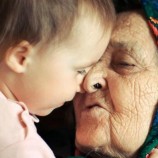How can we win the war with soldiers like this?

As I read the news journal about the wars that the U.S. is waging in Iraq and Afghanistan, I am reminded of the war in Vietnam and I see that nothing has changed: the generals ask for more soldiers and the President of the United States, Barack Obama, cannot deny the request: “I will never let the soldiers down!”, says the president of changes.
A thing of the past?
The trend comes from the USA. A society anchored in extreme individualism and in pursuit of the maximum amount of comfort and pleasure – the so called hedonism of modernity! – produce individuals that are incapable of old the notions of sacrifice, altruism, and dedication to one’s family. And so, the number rises of people choosing to live alone in their apartments. In Stockholm, Sweden, in the 80’s, ¾ of the population lived alone in the capital’s solitary apartments.
As a backdrop, the view that “the other” inconveniences and gets in the way, asking for concessions and demanding hoards of crazy virtues such as patience, comprehension and, of course, forgiveness. Other values come before raising and educating children: building a career, generating business, accumulating assets on a short term basis or to simply “have fun” in life.
In parallel, old clichés repeat themselves: “kids are too much work”, “why put a child in a world like this?” Consequential? In Brazil, couples without children rose from 997 thousand in 1997 to 1.94 million in 2007.
Pedophilia runs wild – the aversion to children. The dinks, abbreviation for double income and no kids, are the new “couples” who stay together, but run away from having kids like the devil from a cross. Sign of the times?
Missing: a father…
In the 09/25/08 issue of “O Globo”, sociologist from Unicamp, Elisabete Dória Bilac points to a new aspect of Brazil: Marriage with children is now a non-obligational standard. The “Folha de São Paulo” of 08/10/08, presented women protesting on the difficulty of finding a companion who, apart from intimacies, is willing to assume fatherhood and build a standard-family.
A newspaper announcement in Porto Alegre proclaimed: “Single woman seeking man interested in being a father”. The plea was posted by a 33 year-old engineer with post-graduation and financial independence. As far as we know, the candidate did not show up. What are the reasons behind this phobia?
Count me out!
A publicist quoted in the “Folha”: “What are we, breeders? You go out with a girl two, three times and already she’s thinking about getting married and having kids. Count me out!” A sales promoter whispers: “It’s hard to find someone willing to have a serious relationship, to really be a father to the son I want to have”. The lawyer is short and sweet: “I think that women in their 30’s get kind of neurotic with this whole idea of having kids. It’s really lame and ice cold for two people going out together. I’m not interested in having kids”.
Para justificar a opção não-reprodutiva, as finanças aparecem em primeiro lugar. Fica muito caro criar filho, pagar escola de qualidade. Com a má qualidade dos serviços de saúde e de educação do Estado, os filhos oneram e desestimulam o casal.
To justify the non-reproductive option, finances seem to be in first place. To raise a kid is so expensive, to pay a quality school. In view of the poor quality of health services and the State educational system, kids encumber and discourage couples.
The absent father
Curiously, the affirmation of “I” has always walked hand-in-hand with the refusal to have children. Jean-Jacques Rousseau, prophet of egoism, never legally acknowledged his own sons. Without a consistent dose of altruism (another name for love) fatherhood is just weight and motherhood a cross.
The social psychiatrist Tony Anatrella writes: “Break ups, the fear of marriage and fear of having children are three problems intimately related to each other and one which contemporary families are faced with. But the omnipresent problem, deplored incessantly for years, and which can be considered the origin and consequential to everything mentioned above, is the ‘absence of the father’. We are ceaselessly brought back to this problem, as a complaint, meanwhile most male parents who do assume their place and care about the well-being and education of their children, all in all, have not abandoned ship. But, since no importance at all is given to the symbolic fatherly role, such individuals are not invited to be involved in the pursuit for bonds of a social or loving nature”.
Another phantom infiltrated into the scenario: a society made of closed individuals living in their own private microcosm, orphans of themselves, lacking social responsibility, without love of their homeland. And here I am, feeling sorry for the apparently good intentioned Obama, and thinking about the naivety of the war generals: how can we win a war this soldiers like this?
Related Articles















